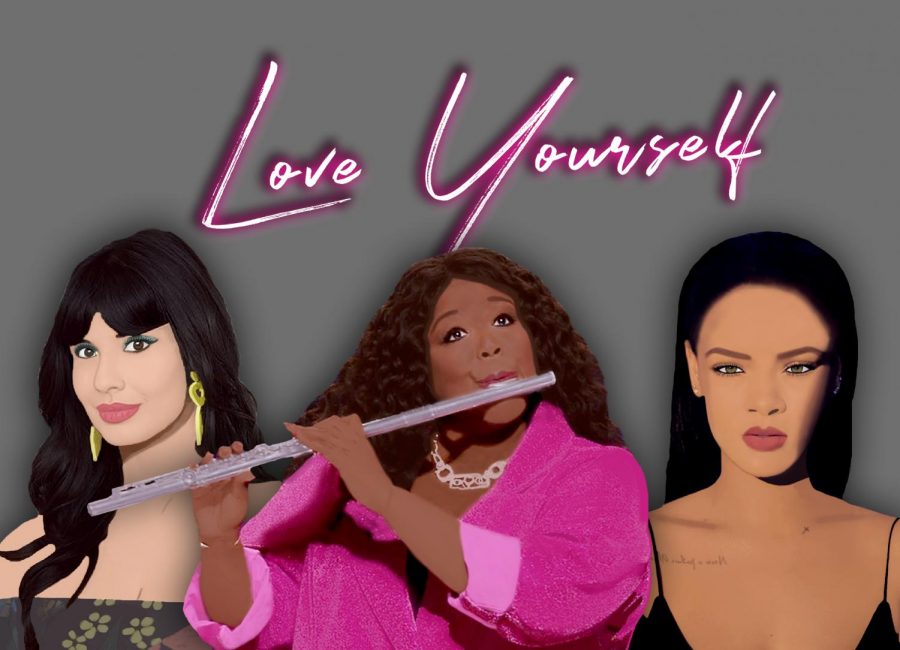Lizzo tells me to love myself, but my Insta feed says don’t
With social media as influential as it is, celebrities have been promoting body positivity more.
A recurring theme of the past few years has been the spoken message of body positivity and self-love, but the subconscious message hasn’t exactly lined up.
In the past few years, celebrities such as Lizzo, Jameela Jamil and Rihanna have used their platforms to advocate inclusivity and positive body images, while certain companies like Dove and Aerie have tried to do the same.
However, we should refrain from too much praising of companies that are promoting an all-inclusive brand, as it’s realistic and responsible of them. It’s important to remember at the end of the day, they are selling a product, according to Katherine Patterson, a professor in the women and gender studies program.
The fact that public figures and companies have promoted body positive objectives is a step in the right direction, but it doesn’t negate the fact that the majority of the ideals we, specifically women, are shown through advertisements — whether on television or social media — are still meant to negatively impact our self-esteem to convince us to buy certain products.
It’s a societal problem overall, and while it is hopeful to see more body positivity ads, where it really hits for young folks, particularly young girls and women, is on social media, especially with the increase of Instagram influencers.
“In the last few years, Instagram models have really affected the way I’ve seen myself,” said Kayla Tralka, a second-year student at Oakland University.
Tralka isn’t the only one who feels this way. A recent study by the University of New South Wales and Macquarie University in Australia found Instagram use has the potential to negatively impact a woman’s concerns and beliefs about her body, especially if they have internalized the ideal, which I think many of us have.
The children of today, the ones going through puberty and figuring out who they are in this world, are not focusing on the ads on television, but the ones on social media.
A survey by Pew Research Center in 2018 found 95% of “teens,” those aged 13-17, in the study had access to a smartphone, and 45% of them are online “almost constantly.” YouTube, Instagram and Snapchat were the most popular online platforms, with YouTube leading the pack.
Many young people on social media may even believe in the unrealistic body images they constantly see, leading to negative feelings about themselves and their bodies, especially girls. Advertisements can often feel and look fake or acted out, but social media is dangerous for body image and self-esteem in a completely different way.
“Social media is such an intimate platform,” Tralka said. “You feel like you actually know [the influencer, model, celebrity] on a personal level.”
There’s the fact online public figures will often promote products they “personally use,” ingraining the idea that if the average person uses said product, they can achieve the look as well, especially when it comes to beauty, skin or weight-loss products. As Tralka pointed out, it is common for discount codes to be affiliated with the public figure’s name, making it almost too easy and intriguing to pass up.
Ads from influencers can also easily be disguised as normal posts while trying to hook you onto a product without your knowledge.
While it is absolutely amazing that curves and larger sizes are being celebrated, it again becomes unattainable when a girl is expected to have big breasts and a big butt, but a skinny waist and flat stomach. No one looks like that unless they have the money and time and, even then, are digitally altered.
“Time, energy and money divides women,” Patterson said, “forcing them to compete against each other.”
This undisclosed competition keeps women separated without being able to see the sexism and misogyny behind it all and how it impacts us, sometimes more than we even realize.







